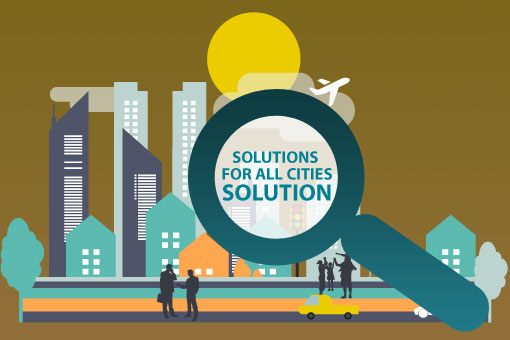- Chandigarh UT
- Creative Corner
- Dadra Nagar Haveli UT
- Daman and Diu U.T.
- Department of Administrative Reforms and Public Grievances
- Department of Biotechnology
- Department of Commerce
- Department of Consumer Affairs
- Department of Industrial Policy and Promotion (DIPP)
- Department of Posts
- Department of Science and Technology
- Department of Telecom
- Digital India
- Economic Affairs
- Ek Bharat Shreshtha Bharat
- Energy Conservation
- Expenditure Management Commission
- Food Security
- Gandhi@150
- Girl Child Education
- Government Advertisements
- Green India
- Incredible India!
- India Textiles
- Indian Railways
- Indian Space Research Organisation - ISRO
- Job Creation
- LiFE-21 Day Challenge
- Mann Ki Baat
- Manual Scavenging-Free India
- Ministry for Development of North Eastern Region
- Ministry of Agriculture and Farmers Welfare
- Ministry of Chemicals and Fertilizers
- Ministry of Civil Aviation
- Ministry of Coal
- Ministry of Corporate Affairs
- Ministry of Culture
- Ministry of Defence
- Ministry of Earth Sciences
- Ministry of Education
- Ministry of Electronics and Information Technology
- Ministry of Environment, Forest and Climate Change
- Ministry of External Affairs
- Ministry of Finance
- Ministry of Health and Family Welfare
- Ministry of Home Affairs
- Ministry of Housing and Urban Affairs
- Ministry of Information and Broadcasting
- Ministry of Jal Shakti
- Ministry of Law and Justice
- Ministry of Micro, Small and Medium Enterprises (MSME)
- Ministry of Petroleum and Natural Gas
- Ministry of Power
- Ministry of Social Justice and Empowerment
- Ministry of Statistics and Programme Implementation
- Ministry of Steel
- Ministry of Women and Child Development
- MyGov Move - Volunteer
- New Education Policy
- New India Championship
- NITI Aayog
- NRIs for India’s Growth
- Open Forum
- PM Live Events
- Revenue and GST
- Rural Development
- Saansad Adarsh Gram Yojana
- Sakriya Panchayat
- Skill Development
- Smart Cities
- Sporty India
- Swachh Bharat (Clean India)
- Tribal Development
- Watershed Management
- Youth for Nation-Building
Common Solutions for all cities

While each smart city will have distinctive features specific to its location, demography, culture and other such factors, there maybe smart solutions to problems which are common ...
While each smart city will have distinctive features specific to its location, demography, culture and other such factors, there maybe smart solutions to problems which are common to all cities. This contest seeks to identify such smart and innovative solutions to common problems.
All questions in this category must be answered to be considered as a complete submission and to be eligible for short-listing.
Questions
1. Out of the following 21 smart solutions, select 3 solutions that should be applied to all Indian cities and provide a brief write-up (max. 50 words) to explain why.
2. Describe a ‘smart’ idea that you have seen in some other city(anywhere in the world) that you would like to see replicated in your own city. ‘Smart idea’ means doing more with less.
3. Describe 3 ways that Indian cities can reduce the gap between rich and poor.
4. List out 5 essential facts about your local municipal corporation that should be available to all citizens.
Entry Deadline
• Entries may be submitted online on the mygov.in portal latest by 23.59 hours (11.59 pm) on Saturday, 20th June 2015.
Evaluation
The submissions will be evaluated on the following criteria:
• Do-ability (50%)
• Innovation (50%)
Award
Two winners in each category will be awarded a citation from the Prime Minister at the Smart City Mission Launch on June 25th, 2015 at VigyanBhavan, New Delhi, along witha cash prize of the following amounts:
• Rs. 40,000 - First Prize
• Rs. 25,000 - Second Prize
The winning ideas would be shared with the 100 SmartCities as potentiallyimplementablesolutions and will be considered for pilot
• All questions in a particular category must be answered to be considered as a complete submission and to be eligible for short-listing.
• The participants(s) entries will be judged for each category independently and on merit. In case of short listing in more than one category, a participant will receive prize money for one category only.
• The length of each answer is limited to 250 words or less.
Click here for Terms & Conditions and details of Prize amount


Here is my entry for common solutions to smart cities.
..Residential
Solar photovoltaic for residential and small building applications
1.Renewable sources of energy, Energy efficient & green buildings, smart parking:A new source of energy can save existing sources, decreases global warming with more efficiency.Self power generation can increase buildings independency and smart parking with proper administration decreases the traffic congestion.2.Tunneling, footover bridges reduces traffic congestion.3.Eradication of slums and providing basic needs for all.4.Usage of allocated funds,transportation details,road maps and routes
Answer1-
1-Smart Buildings & Homes Solutions-
Industrial & Office Buildings
Comprehensive energy performance contracting for public buildings, financed with guaranteed savings. Photovoltaic generation for solar farm and large buildings, Intrusion detection integration, Remote Energy Management Solution, On-Site Energy Management Solution for buildings.
Please find attached the file answering the question asked. Am open for discussion on the topics.
My comments are enclosed.
Manoj Jain
3.a)Because of less money poors don't have good or clean clothes to wear and thus they look ugly.Govt. should supply clothes in low cost.b)There should be govt. houses for poor in low budget of rent.c)Rich & poor should work together.
I have attached all the answers together as a pdf.
4.
a. Implementation of Smart- Cycling Tracks and Sharing Systems
b. Segregation of Waste – Local Composting instead of dumping at landfills
c. Planting saplings on street edges – transforming to tree lined avenues
d. Upgradation of Transit Stops
e. Informative Signage and installation of urban way finding systems
c. Social Gap: Design of active public spaces- wider and fair consumerism-smallest of stores should also be given permission to sell his goods-ultimately encourages the poor to amalgamate.